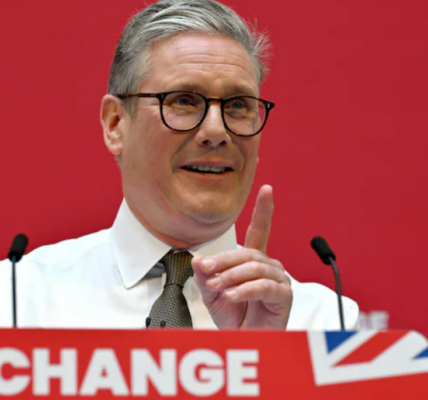Labour’s plan to slap VAT on private school fees in the Budget will hit more than 100,000 children with special needs_Nhy
More than 100,000 children with special needs will be hit by Labour’s plan to slap VAT on private schools, after the Education Secretary yesterday ruled out giving them an exemption.
Bridget Phillipson said Labour was determined to press ahead with the controversial tax raid in this week’s Budget to fund additional teachers in state schools.
She said that only the small minority of special needs children with a formal education health and care plan (EHCP) statement would be spared the hike.
The designation, handed out by local authorities, covers fewer than 8,000 of the estimated 111,000 children with special needs taught in private schools, whose parents face a potential 20 per cent rise in fees from January.
Ms Phillipson acknowledged that many parents feel ‘desperately let down’, adding: ‘I will deliver a better state sector for children to make sure that there is more specialist support within mainstream settings.’

Bridget Phillipson said Labour was determined to press ahead with the controversial tax raid in this week’s Budget to fund additional teachers in state schools

The education secretary said that only the small minority of special needs children with a formal education health and care plan (EHCP) statement would be spared the hike (Stock Image)
But she told the BBC only those with an EHCP statement would be exempted ‘because that’s where a need has been determined through that process’.
The Education Secretary said private schools ‘have choices’ about whether to pass on the 20 per cent VAT hike or absorb it themselves.
Shadow education secretary Damian Hinds called on Labour to rethink the ‘flawed’ tax, saying it would have a heavy impact on state schools forced to account for private school children whose parents can no longer afford the fees.
He added: ‘Even if the Government does insist on going ahead, a wider group of children with special needs ought to be exempted – not just those with an EHCP naming a school.’
Whitehall sources yesterday indicated, however, that military families with private school children could be thrown a lifeline by Rachel Reeves in the Budget after ministers accepted the argument that many have little other option.
But pressing ahead with charges on special needs pupils will be seen as vindictive by families struggling to send their children private because local state schools cannot cope with their requirements.

The designation, handed out by local authorities, covers fewer than 8,000 of the estimated 111,000 children with special needs taught in private schools (Stock Image)
A group of parents is now considering a legal challenge on the grounds that their children’s human rights would be breached by the tax, making it impossible for them to continue at school.
Ms Reeves is expected to announce on Wednesday that the VAT raid will go ahead in January, despite warnings that parents with children facing exams in summer might have to withdraw them from school during the academic year.
‘[The tax hike] is absolutely urgent,’ she said. ‘We’ve got too many children who do not have specialist teachers at the front of their classroom.’
Ms Phillipson also declined to say whether pre-school nurseries would be spared an expected hike in National Insurance contributions, despite Labour’s drive to recruit more staff.
She told Times Radio: ‘This is hypothetical, but they can be assured that I’ll work with them to deliver a brilliant early years and childcare system.’




